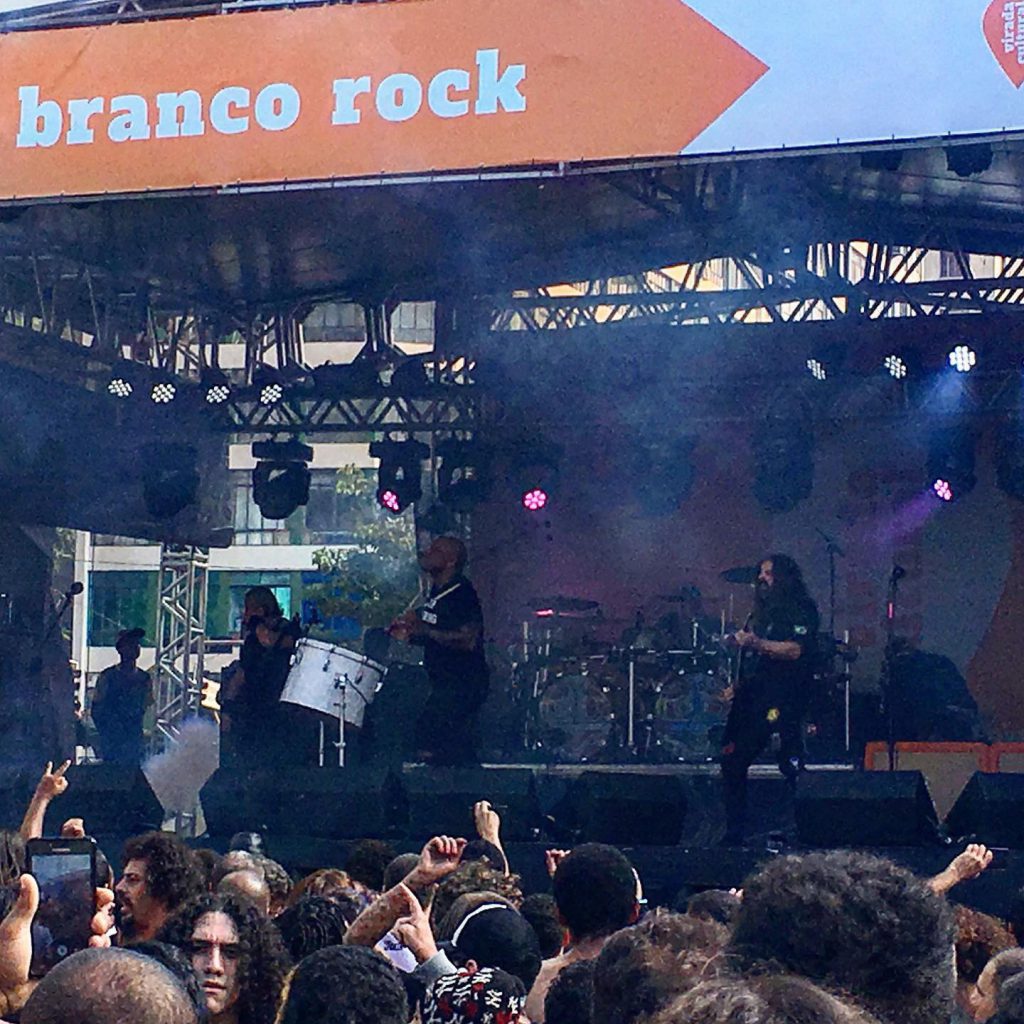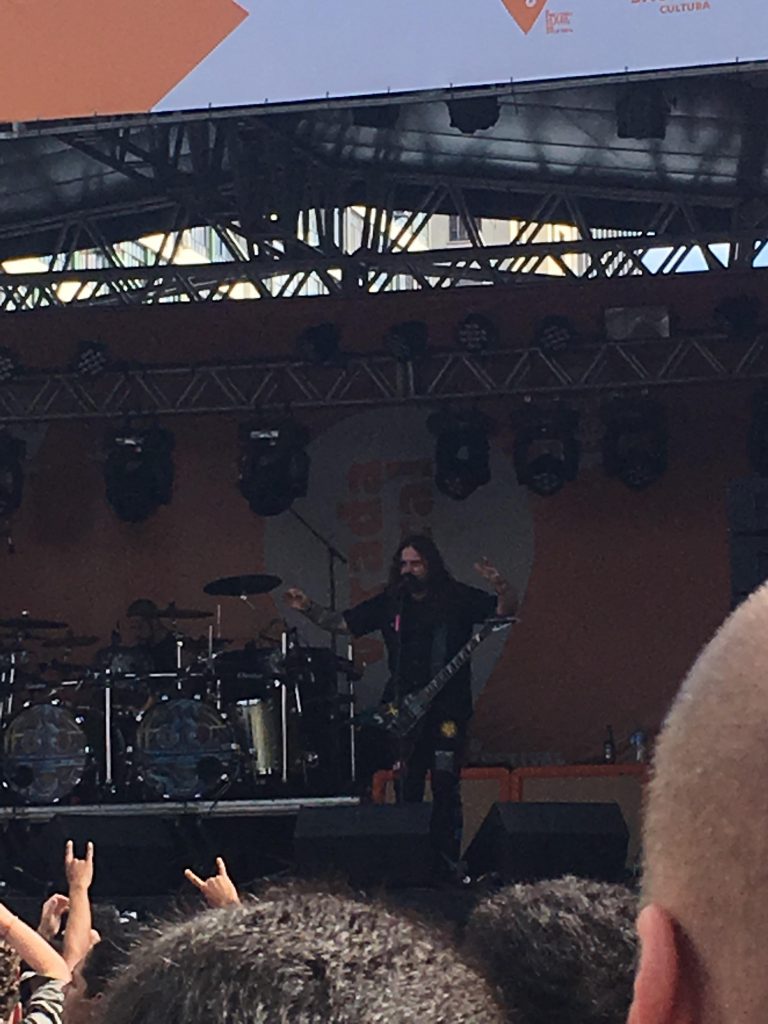When we arrived in Brazil almost a week ago, I was surprised by my host family with the opportunity to see Sepultura, a Brazilian metal band that I am a huge fan of. All I knew when I heard about this opportunity was how excited I was to see this band in their home town of Sao Paulo. What I didn’t know is that the activities and workshops that I participated in throughout the week would give me a deeper understanding of this band’s music than I would have otherwise had.

The show was part of the 24 hour festival, Virdada Cultural, and even though Sepultura took the stage at 9:25 am, the venue was packed and the crowd was beyond enthusiastic. At this point, I thought I knew everything there was to know about what was about to go down.

I was wrong.
The music and fan reaction are not what surprised me. Sepultura delivered their unique brand of thrash and groove metal excellently, and the crowd (including myself) was cheering and singing along with every song as I expected. What surprised me is the connections I made between the band’s music and all of the lessons that I have been learning over the past week while in Brazil.
I always knew that the song “Attitude” featured a traditional Brazilian instrument that I was unfamiliar with in its intro, but it was only through the Capoeira workshop earlier this week that I learned that it was a berimbau, a traditional instrument used in Capoeira.
I always knew that the song “Ratamahatta” is sung in Portuguese (unlike most of their songs which are in English despite the band’s Brazilian roots), but I was never able to understand it when putting it into Google Translate because it consists of seemingly random words strung together. However, after talking with my host, Tiago, I learned that all of the verse lyrics are words that are unique to Brazilian Portuguese and are used to describe poverty in Brazil. Examples include, “favela” and “maloca.”
It was through these connections that I realized what a unique experience I had by seeing Sepultura in Brazil. If I had never gone on this trip, I would still probably have an opportunity to see them tour in Rochester, but I would not be able to understand these songs that I have enjoyed for years on the deeper level that I understand them now.
It is through this concert that I learned that culture can sometimes be invisible until it is examined through experience. While it would have been perfectly acceptable for me to simply enjoy the show as a fan, I am grateful for the proof that everything that we’re doing in Brazil is giving us the ability to notice the rich culture of others that might be invisible to the untrained eye.



1 Comment
Amy Kovach · May 21, 2019 at 2:47 pm
I love this: Culture is invisible until examined through experience!!!! This is so true and I am so glad you are getting to experience and examine!!!
<3 Dr. Kovach